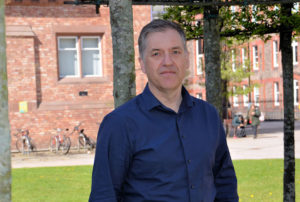The Royal Academy of Engineering has announced their highly prestigious Chairs in Emerging Technologies. This funding champions disruptive innovations, providing long term support for research that has a potentially huge economic and social benefit. Two of the 9 awards have gone to RAIN researchers. Professors Barry Lennox and Michael Fisher were both awarded funding to support their research programmes. The funding lasts for ten years and will enable them to progress their research through to deployment and commercialisation stages.


Professor Dame Ann Dowling OM DBE FREng FRS, President of the Royal Academy of Engineering, said: “The new technological areas advanced by our Chairs in Emerging Technologies have the potential to transform our everyday lives, as well as positively impact to the UK’s economy and generate new sources of wealth. Engineering is critical to achieving the goals of the UK government’s industrial strategy, and investment in emerging technologies means that we can secure our footing in important future markets.
“For these technologies to reach their full potential it is important to invest in the pioneering individuals who advocate for them, as without their vision and foresight it is difficult to identify the products and services of tomorrow.”
Professor Barry Lennox FREng, is based at the University of Manchester and director of the RAIN Hub. The funding will support his work on “Transforming operations in the nuclear industry using robotics”. Professor Lennox will lead the development of robotic systems for use in nuclear facilities, helping to reduce the risks associated with humans entering hazardous environments. The project will deliver cutting edge technology to enable robots to carry out complex operational tasks in “dirty” and unstructured environments, helping robots to become commonplace in all areas of the nuclear industry.
Professor Michael Fisher, University of Liverpool, leads theme 4 and the Safety Case Working Group. He will use the funding to support his research into “Responsible autonomous systems”. Professor Fisher’s research focuses on the development of formal verification techniques to uncover and understand why a robot might make a particular choice. Taking a new approach to the construction autonomous systems, his techniques will capture and analyse key decision-making within software to provide formal proof that an autonomous system will always make the safest and most ethical decisions.
Huge congratulations to Barry and Michael on their success. This additional funding will only act to bolster the work we can do within the RAIN Hub.